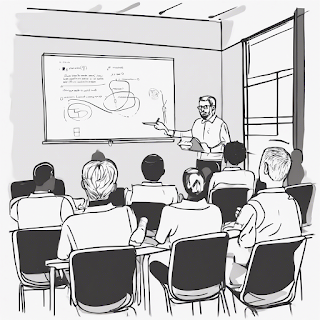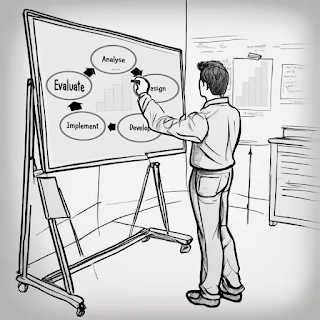ADDIE: The Design Stage

In the ADDIE process, the Design stage serves as a critical period where instructional designers translate insights gathered during the Analysis stage into actionable plans for engaging learning experiences. At its core, the Design stage involves understanding and refining learning objectives to ensure alignment with both learner needs and organisational goals. This is where we lay the foundation for the development of our learning experiences, taking care to create a careful balance of learning principles, technological considerations, and creative flair. Exploring Learning Objectives The Design stage begins with a deep dive into the learning objectives identified during the Analysis stage. Instructional designers facilitate collaborative discussions and brainstorming sessions to explore and refine learning objectives further. By engaging stakeholders and subject matter experts, designers can ensure that learning objectives are relevant, ach...

